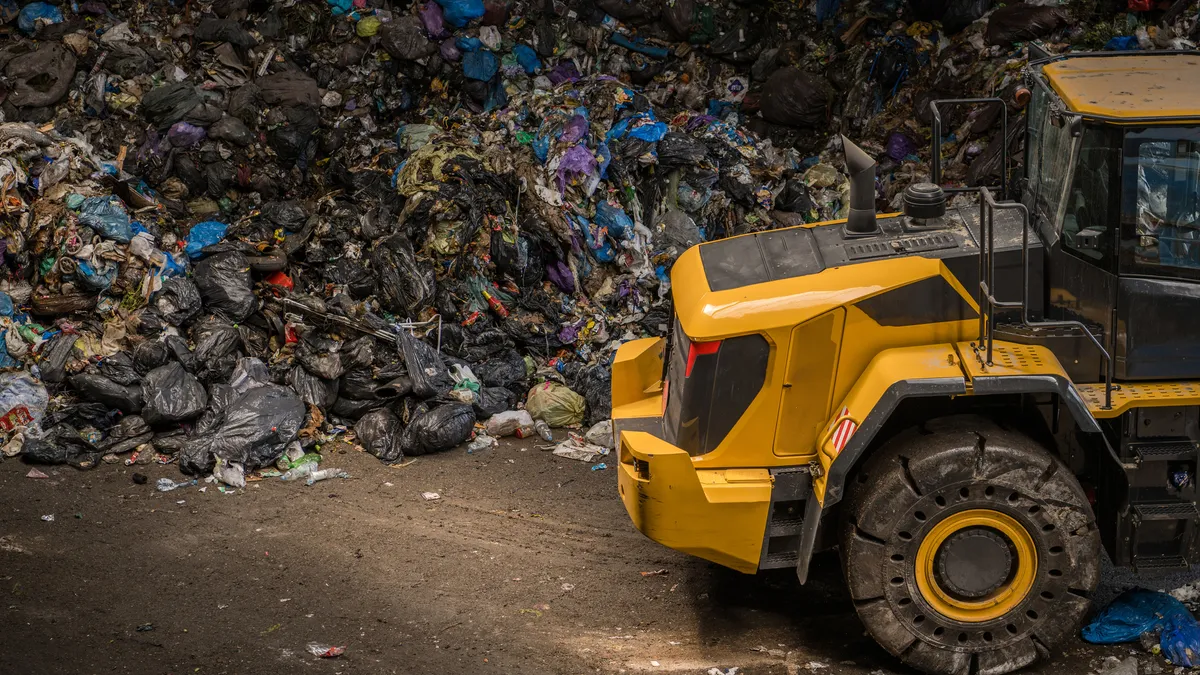Connecticut’s legislature is advancing a bill that would expand the state’s environmental justice law to cover more types of waste facilities and could require operators to consider cumulative impacts on disadvantaged communities as part of the permitting process.
SB 1147, backed by the Connecticut Department of Energy and Environmental Protection and the Connecticut Siting Council, would give the two entities more authority to deny new or renewed permits to some types of facilities located in environmental justice neighborhoods. The Connecticut General Assembly Environment Committee passed the bill March 24.
DEEP and the siting council could decide to deny permits or add conditions if a project’s cumulative environmental and health impacts are higher in an EJ community than in neighborhoods the state does not consider overburdened.
Connecticut already has an environmental justice law, established in 2009, that requires certain facilities applying for permits in environmental justice areas to host community meetings and create other “meaningful public participation plans.” Facility operators may also need to agree to undergo community improvements such as pollution reduction initiatives or projects like bike trails.
The proposed bill would expand that law to require covered facilities to consider their facility’s cumulative impacts on such communities. That could mean filing additional documents that measure and identify “adverse environmental or public health stressors that cannot be avoided if the permit is granted” as well as other environmental and health stressors the community already experiences.
The bill would also expand the list of facility types that fall under the state’s EJ regulations. Current law includes landfills for solid waste or C&D and recycling facilities with volumes over 25 tons a month. The expanded bill would also add solid waste transfer stations, “resource recovery” facilities and chemical recycling facilities that also have volumes over 25 tons a month.
If passed, this law would follow activity in several nearby states that have recently passed “cumulative impact” EJ laws. New York’s new EJ law, which will go into effect in June, will require some waste and recycling facility operators applying for certain permits to consider the cumulative impacts of their operations on disadvantaged communities.
Matthew Karmel, principal attorney at Offit Kurman, said Connecticut’s proposed EJ bill is also similar to parts of New Jersey’s EJ law passed in 2020, which many in the waste industry consider the country’s most notable and detailed of such recently passed laws.
Rep. Geraldo Reyes Jr., a bill sponsor who lives in the South End area, a neighborhood of Hartford, told Energy News Network that his neighborhood faces numerous health issues due to pollution from nearby facilities. More needs to be done to protect communities from future health impacts, he said. Reyes also advocates for changing one word of the bill, from “may” to “shall,” to require all covered facilities to undergo the cumulative impacts process during permitting instead of allowing DEEP to consider it on a case by case basis.
Environmental groups like Sierra Club Connecticut and the Nature Conservancy, along with the Connecticut Equity and Environmental Justice Advisory Council, also support the bill.
The Connecticut Business and Industry Association, which represents some energy and “sanitary services” members, opposes the bill. CBIA’s government affairs associate Ashley Zane said the bill would “significantly impact permitting timeframes” and add unnecessary requirements for industries that are already required by law to obtain permits that include public comment periods and action plans.
Connecticut’s legislature is also mulling a bill meant to overhaul waste management in the state and expand organics separation programs as well as eventually establish and extended producer responsibility for packaging program. It’s part of Gov. Ned Lamont’s long-term plan for Connecticut to manage waste differently now that a major WTE facility run by Materials Innovation and Recycling Authority has closed.











